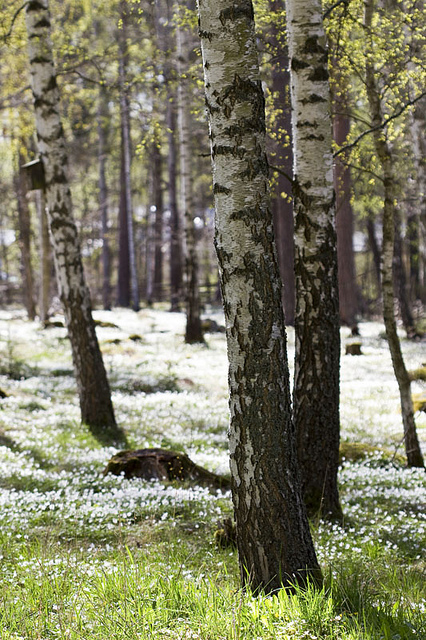I remember this as if it happened yesterday.
We were from a small isolated forest village near the Vistula. Our village was so small that it made other small villages look like cities. Maybe that’s why they didn’t send a lorry for the few of us, just two guards with mausers left over from the Great War, and two kapos with small truncheons.
The feldwebel who wore an ill-fitting uniform stinking of dirt and sweat and whose breath reeked of cheap spirits, formed us into a line of march. It became clear that we shared something strangely in common. He didn’t want to be assigned to this duty taking us from our homes. And we didn’t want to leave our homes. That didn’t stop the feldwebel from carrying out his assignment.
We were each allowed one small grip and we began our walk to shouts, insults and beating. The kapos were intent on showing a servile gratitude to the feldwebel by conducting their beatings with added enthusiasm and cruelty. We walked and walked in the early morning light. The late March air was fresh and encouraging. We fell into silence, only the sound of our heavy breathing, an occasional cough and trudging footsteps mixed with the sound of spring birds.
Now I could hear the nearby brook running over the rocks. I have always loved early spring days. The brisk feel of the morning on the skin, winter in retreat and the hope of warm weather ahead. Hope. I glanced to my left, the rising sun throwing shafts of light through the stand of birch trees and pine that framed the brook. I could see patches of lingering snow clustered in the shadows interspersed with fresh green bursting from the ground. And the birds. Flying from limb to limb, tree to tree. In song and flying free.
The sound of the brook again. I know that stream well. Swelled with winter run-off, icy cold. I would come to the stream with my father on a day just like this. A young boy with only one thing on his mind. My father would hoot at me as I ran to the edge of the stream. I would pick out a perfect rock to stand on, take off my boots, roll up my pants and step onto my rock perch in the racing water. The water would sting my ankles and I would begin to count… one, two, three, four. My father would be holding his belly laughing. Fifteen, sixteen, seventeen… I would concentrate on keeping my balance on the smooth rock. Thirty-one, thirty-two, thirty-three… how long could I remain in the water? Maybe I would set the record?
To this day, I can still hear my father laughing. The memory of his laughter faded as we walked deeper into the wood and away from the brook.
We walked and walked, no rest, we stumbled, felt a hard kick and endured the heel of a mauser. Then a rifle’s report. Our blood stained the melting snow.
The gripping pain, I could not cry out. And I heard my father say, “Do not fear. You will soon find yourself in paradise, you will sit at the table with all your loved ones, see their smiles and you will know adonai.”
— translated from the original in Polish

